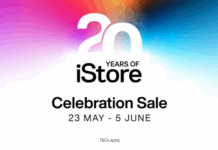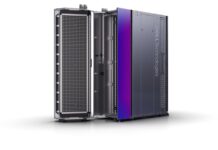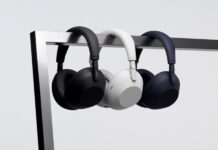More people are switching to Chromebooks as they discover the benefits of these digital-era laptops. Now, a new pedigree of Chromebooks is available: the Chromebook Plus. Could this machine be your next laptop?
The dawn of Chromebooks
Today’s laptop user has access to more choice than ever before. There are different designs— sleek and thin, big and powerful, touch screens, and 2-in-1 hybrids—and different operating systems, such as Windows, Mac, and Chromebook.
The Chromebook is a particular standout. Most other laptops are portable versions of a classic desktop computer. In contrast, Chromebooks were explicitly designed for the Internet era.
The first Chromebooks, launched in 2011, were not much more than a place to use Google’s Chrome browser. But a lot has changed over the years. Today, Chromebooks are recognised as a more internet- and budget-friendly choice than many other laptops. Modern Chromebooks run web-based software-as-a-service applications such as Office365, Slack, SalesForce, Zoom, and Google’s applications. They also run Android apps, sync with Android phones, and, for the technically inclined, even support Linux applications.
In other words, Chromebooks are excellent for today’s digital lifestyles, says Renasha Papiah, Business Manager, Commercial and Education at Acer Africa:
“We’ve been supporting Chromebooks from the start. Acer and Samsung were the first two brands to release Chromebooks in 2011, and we’ve not stopped because the Chromebook makes a lot of sense for the connected world. They are quick, secure, have lots of battery life, and are very portable. Chromebooks have matured, and customers appreciate their benefits. Today, millions of business professionals, educators, students, and general users enjoy their Chromebooks.”
Meet the Chromebook Plus
The original vision of Chromebooks was a laptop that offered more for less and helped more people use the power of the online world. Modern Chromebooks fulfil this promise, and now they have extended their computing power and speed with the Chromebook Plus.
Chromebooks are manufactured according to specifications from Google. Each manufacturer can add unique touches—for example, Acer Chromebooks contain additional security, privacy, and video conferencing features. Chromebook Plus is the new ‘elite’ Chromebook standard. It doubles the specifications of standard Chromebooks, enabling the Chromebook Plus to do the same heavy lifting as high-end laptops.
“Chromebook Plus is double the machine. It has more memory, more storage, and more powerful processors. That extra power lets these devices do more, such as run demanding applications like Adobe Photoshop and new artificial intelligence features,” says Papiah.
Yet true to the Chromebook vision of making good laptops more accessible, Chromebook Plus models are still considerably more affordable than their Windows and Apple peers.
Is the Chromebook Plus for you?
Admittedly, the Chromebook family’s biggest challenge is that they represent a new operating system—they cannot natively run Windows or Apple applications (just as Windows machines cannot run Apple software). New Chromebook users might undergo a short adjustment period but find it worthwhile.
They discover that Chromebooks are very efficient yet high-quality laptops that make more sense in the internet era than other laptops. Still, many users, including loyal Chromebook fans, would like more power under the hood, hence the Chromebook Plus.
Are the Chromebook and Chromebook Plus for you? If you use online software often through a browser or app, Chromebooks have many advantages over other choices. They are also reliable offline devices—modern Chromebooks do not need constant connectivity and can save files offline. The Chromebook Plus extends this ability even further.
Chromebooks are incredibly portable and offer much battery life (Chromebook Plus models must deliver at least 10 hours). The 2-in-1 models (such as the Acer Chromebook Spin) provide excellent laptop/tablet hybrids. Flagship models, such as the Acer Chromebook Plus 515, have the memory, storage and processing power to challenge top-end laptops. If you rely heavily on your phone, the growing synergy between Chromebooks and Android phones boosts productivity.
“It’s key to know that Chromebooks are not Windows or Apple laptop clones,” says Papiah. “They do their own thing and they do it well. But they are not alien to newcomers because Google puts a lot of effort into making Chromebooks very user-friendly. As more people work in hybrid fashion or look for their laptops to match the versatility of their phones, Chromebooks have started to stand out as slick, reliable, and portable devices.”
The Chromebook Plus takes digital lifestyles to another level without sacrificing affordability or quality. Should you get a Chromebook? It’s a question worth exploring because Chromebooks are the laptops of the future.
Article Provided




























